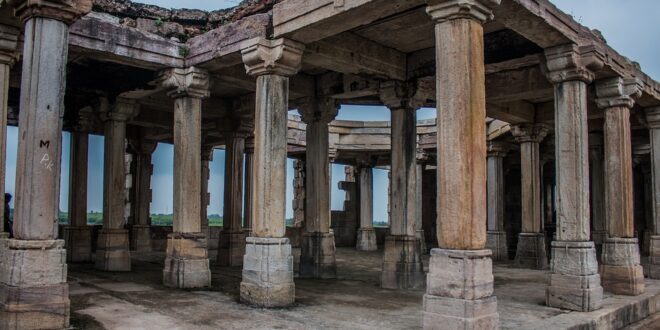10 Fascinating Ancient Civilizations That Shaped Our World
Ancient civilizations hold a lot of mystery and intrigue. From their intricate writing systems to their impressive architectural wonders, these civilizations were incredibly advanced for their time. In fact, many of their achievements continue to influence and inspire the modern world. Here are 10 of the most fascinating ancient civilizations that shaped our world today.
The Ancient Egyptians
Perhaps one of the best-known ancient civilizations, the Egyptians developed a rich culture that persisted for thousands of years. They were exceptional architects, building giant pyramids and intricate structures such as the temple of Karnak. The Egyptians were also highly skilled in mathematics, using a decimal system and algebra to problem solve and plot the stars.
The Mayans
The Maya civilization created a highly organized and complex society in what is now Mexico and Central America. They developed a complex calendar system that is still used today, and were highly skilled in astronomy and mathematics.
The Greeks
The Greeks made fascinating advancements in every field, from architecture and literature to medicine and philosophy. They developed the famous Acropolis in Athens, invented the Olympic Games, wrote great epics such as the Iliad and the Odyssey, and established foundational concepts in mathematics and geometry.
The Persians
The Persian Empire spanned much of the Middle East and Central Asia. Its most influential ruler, King Cyrus, was known for his tolerance of all religions and cultures. The Persians were known for their elaborate architecture, including the magnificent Persepolis, and had a strong tradition in art and poetry.
The Babylonians
The Babylonian civilization was one of the first to dynastically rule Mesopotamia. They established a complex legal system and are known for their advancements in mathematics and astronomy. In fact, the Babylonians were the first to discover the periodicity in the movements of the planet Venus.
The Romans
The mighty Roman Empire is remembered for its many achievements in innovation and engineering. They constructed monumental structures such as the Colosseum and the aqueducts to create a sophisticated civilization. The empire’s road system would also impact ancient trade routes, being part of their massive territorial conquest.
Indus Valley Civilization
The Indus Valley civilization in Pakistan and India might be one of the least-known on this list but produced many technological and art advances. These included piped water-supply, wooden cotton spindles and hemp combs, and a fully functional sewage system consisting of interconnected covered storm drains beneath their streets.
The Chinese
The Chinese civilization spans more than three millennia and shines in many aspects of culture and technology. Chinese civilization gave birth to important, practical inventions that shaped the path to modern times. Their methods of producing silk fabrics, ceramics, gunpowder, and crude blast furnaces paved the way for civilization in centuries to come.
The Aztecs
Founded in the 14th century, the Aztec Empire in Mexico produced engineering works that continue to astound the modern world, such as the floating gardens of Xochimilco. They were artists and storytellers, skilled in weaving and feather painting, and masters of agricultural techniques. But against all odds, the empire was ultimately conquered by Hernan Cortes over a span of two years.
The Incas
The Incan Empire in South America was a society rich with mythology, agricultural expertise, and incredible engineering achievements. Machu Picchu, one of the most well-known feats of engineering, established the Incas as masters of construction. It suggests an organization-driven workforce that was dedicated to the task at hand.
Almost all ancient civilizations were shaped by innovation and progress spread throughout generations of people. Now that we have an understanding of just how much their legacies impact us, appreciating their contributions and discoveries continue to amaze both casual folk historians and professional scientists everywhere.
 Mind Uncharted Explore. Discover. Learn.
Mind Uncharted Explore. Discover. Learn.
